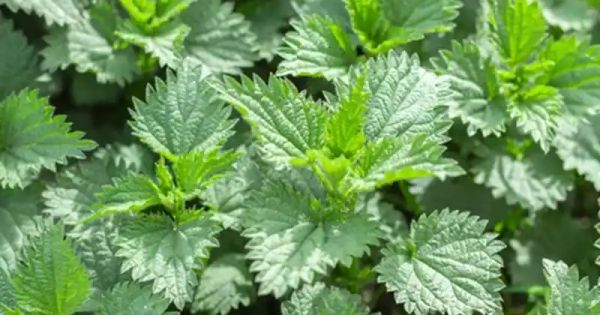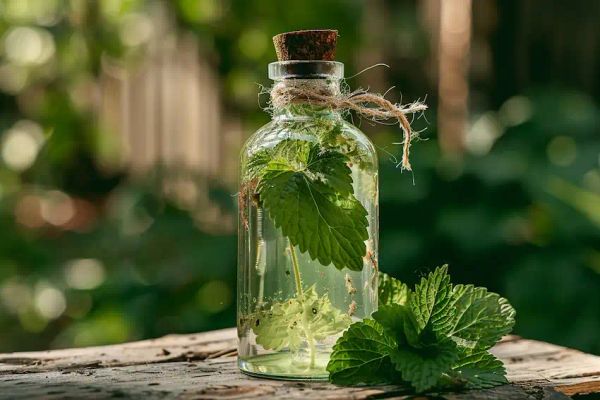
Are you looking for an easy and organic way to boost the growth of your vegetable garden? Look no further than nettle fertilizer syrup! Nettles are packed with essential nutrients that can enhance soil fertility and promote healthy plant growth. In this article, we will walk you through the process of making nettle fertilizer syrup and how to use it effectively to grow vibrant and robust vegetables.
Why Use Nettle Fertilizer Syrup?
Nettles are a wonderful source of nitrogen, potassium, and trace minerals, which are crucial for plant growth. By using nettle fertilizer syrup, you not only support the health of your vegetables but also contribute to eco-friendly gardening practices.
Ingredients and Materials Needed
To make nettle fertilizer syrup, you will need the following:
- Fresh nettle leaves
- Water
- A large container (preferably non-metallic)
- A stirring stick
- A strainer or cloth
- Protective gloves (nettles can sting)
Step-by-Step Guide to Making Nettle Fertilizer Syrup
Harvesting Nettles
Wear protective gloves and collect fresh nettles. The best time to do this is in the spring or early summer before they flower. Cut the top 6-8 inches of the plants, as these parts contain the most nutrients.
Preparing the Container
Choose a large, non-metallic container to avoid any potential reaction with the mixture. A plastic bucket or wooden barrel will work just fine.
Filling the Container
Fill about half of the container with the harvested nettles. Slightly crush or chop the nettles to help release their nutrients.
Adding Water
Cover the nettles completely with water, using a ratio of approximately 1 part nettles to 10 parts water. Stir the mixture well to ensure all the nettles are submerged.
Fermentation Process
Loosely cover the container to allow gases to escape during fermentation. Let the mixture sit for 2-3 weeks, stirring occasionally. You will notice a strong odor as the syrup ferments and the nutrients are extracted from the nettles.
Straining the Syrup
After 2-3 weeks, strain the mixture using a cloth or strainer to remove the solid plant material. The resulting liquid is your nettle fertilizer syrup.
Using Nettle Fertilizer Syrup in Your Garden
Dilution
Nettle fertilizer syrup is highly concentrated and should be diluted before use. Mix one part syrup with ten parts water to create a nutrient-rich feed for your plants.
Application
During the growing season, water your vegetable plants with the diluted syrup every 2-4 weeks. Apply the solution directly to the soil around the base of the plants, avoiding the leaves to prevent any potential burning.
Foliar Spray
For an extra boost, you can use a more diluted solution (1 part syrup to 20 parts water) as a foliar spray. Apply it to the leaves early in the morning or late in the evening to avoid the hottest part of the day.
Benefits of Nettle Fertilizer Syrup

Nettle fertilizer syrup offers several benefits for your vegetable garden:
- Enhanced Growth: The high nitrogen content in nettles promotes vigorous growth and lush foliage.
- Disease Resistance: Nettles contain compounds that can boost plants’ immune systems, making them more resistant to diseases and pests.
- Soil Health: Regular use of nettle fertilizer syrup improves soil structure and fertility, creating a healthy ecosystem in your garden.
Tips for Success
Here are some tips to help you make the most of nettle fertilizer syrup:
- Regular Use: Consistently apply nettle fertilizer syrup throughout the growing season for optimal results.
- Complementary Fertilizers: Combine nettle fertilizer syrup with other organic fertilizers like compost or manure tea to provide a balanced nutrient profile.
- Sourcing Nettles: If fresh nettles are not available, you can use dried nettles instead. Simply rehydrate them in water and follow the same fermentation process.
Making and using nettle fertilizer syrup is a fantastic way to nourish your vegetable garden organically. It’s easy to make, cost-effective, and incredibly beneficial for plant health and growth. By incorporating nettle fertilizer syrup into your gardening routine, you can enjoy a bountiful and sustainable harvest of vegetables. Happy gardening! For more tips on using nettles in your garden, check out “harnessing nature’s bounty: eco-friendly pest control with nettle extract,” “unveiling the hidden treasures of purple dead nettle,” and “the ultimate nettle juice recipe for a multitude of health benefits.”



